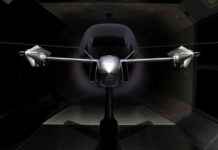More than 200 years old, the Peugeot family business was founded in 1810 (under Napoleon I), and began building automobiles in 1891. Thanks to a revolutionary 4-cylinder engine design (dual overhead camshaft and 4 valves per chamber) by engineer Ernest Henry, the lion brand dominated early 20th century endurance racing, notably winning the Indianapolis 500 in 1913, 1916 and 1919. Far ahead of its time, this engine will also serve as inspiration in motor racing in the United States until the 1970s.
On the strength of this experience, Peugeot entered the 24 Hours of Le Mans from the fourth edition of the event in 1926 with two Type 174S 4-cylinder 3.8 liters of 100 hp, number 2 for the André Boillot-Louis Rigal crew. , the 3 for Louis Wagner-Christian Dauvergne. The start of the race was promising, since the Peugeots immediately took the lead, setting the lap record along the way. Still in contention for victory in the early morning of Sunday, the French will suffer from an intransigent application of the rules, the number 3 being disqualified on the 76th lap for having been started with the buggy after a pit stop, the 2 being disqualified shortly after due to a broken windscreen pillar… The public cried foul but Peugeot left empty-handed.
The Lion brand did not return to Sarthe until 1937 as a Darl’mat DS engine manufacturer with 2-litre 4-cylinders. The cars finished in honorable 7th, 8th and 10th places but could not dispute the victory finally won by the Bugatti Type 57G (also called “the Tank” for its particular style) 8 cylinder 3.3 liters in front of two Delahaye 6 cylinders 3.6 liters. The Darl’mat progresses and ranks 5th in 1938, but it would need a more powerful engine to claim victory. This engine, the Peugeot engineers will not provide it to the WM team until 1988, which establishes with its P88 a speed record still unequaled in the straight line of the Hunaudières, at 407 km / h, finally announced at 405 km / h to echo the launch of the Peugeot 405 that same year. But this historic performance is worth overheating the V6 2.8 turbo Peugeot, which leads to the abandonment of the WM shortly after.
The ambition to win the 24 Hours of Le Mans only really took shape for the Lion brand under the impetus of Jean Todt in the late 1980s, after numerous victories in the world rally championship and in rally-raid . This is the 905 program, launched in 1988 and officially presented in July 1990. If the 905 Evolution 1 with the 3.5-litre V10 engine of 650 hp won its first victories in 1991 in sprint races, it was not yet reliable enough. to finish the 24 Hours of Le Mans, the two examples entered that year successively retiring due to ignition failure and gearbox control failure. Meticulously prepared, the 1992 and 1993 editions are those of consecration for Peugeot, which thus won two rank victories in the Sarthe. So much so that at the end of the 905 program, the Lion brand entered Formula 1, becoming an engine manufacturer for McLaren in 1994.
Peugeot did not return to the 24 Hours of Le Mans until 2007 with the ambition to win a diesel engine (a performance that Audi managed to achieve in… 2006 with the R10 TDI). The Peugeot 908 HDi is obviously well born since it takes pole position on its first appearance in the Sarthe in the hands of Stéphane Sarrazin. Alas, the end of the race was marred by mechanical problems for Peugeot, and while the 908 n°7 had to retire less than two hours from the end of the event, the n°8 in turn showed signs of weakness in the last hour, but nevertheless managed to finish in 2nd position behind the Audi R10 TDI n°1, which marked the 7th victory for the brand with the rings in 8 years.
The 2008 edition was even more cruel for Peugeot, which clearly dominated practice and the start of the race. But this domination is only valid on dry ground, and the Audis inexorably regain the advantage when the rain begins to fall during the night. Audi no. 2 took the lead again in the early morning, but the rain stopped and Peugeot no. 7 moved up. Unfortunately for Peugeot, another downpour flooded the track less than two hours from the finish and froze the positions. Audi won again ahead of two Peugeots. We have to wait for the 2009 edition to see the lion brand triumph again in the Sarthe after many adventures. This is Peugeot’s third victory to date at the 24 Hours of Le Mans.
The Lion brand returned to Sarthe without success in 2010 (withdrawn) and 2011 (finishing 2nd, 3rd, 4th and 5th places, but still leaving the victory to Audi), and threw in the towel at the start of the 2012 season when the development of the hybrid version of the 908 was however finished, and the team was ready to take part in the first round of the season at Sebring in the United States. It is therefore with a desire for revenge that Peugeot Sport returns to Sarthe in 2023 after a long period of gestation and development for its new 9X8.















